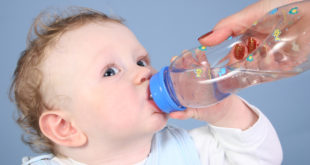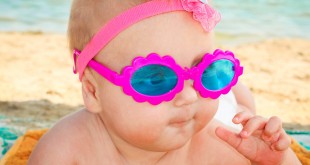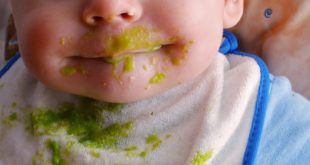Ask Anne…
 Question: My doctor just told me that my 3 month old exclusively breastfed baby needs to drink several ounces of water a day in order for her to get enough fluoride. Does she really need extra fluoride?
Question: My doctor just told me that my 3 month old exclusively breastfed baby needs to drink several ounces of water a day in order for her to get enough fluoride. Does she really need extra fluoride?
Answer: Breastfeeding provides dental health benefits for babies, including fewer cavities and better oral development, decreasing the need for braces later in life.
The AAP (American Academy of Pediatrics) recommended in their 2012 policy statement that fluoride supplements NOT be given to breastfed or bottle fed babies younger than 6 months.
They recommend that children from 6 months to 3 years be given fluoride supplements only if they live in areas where the fluoride concentration in the water is less than 3 parts per million.
I f you’re not sure what the levels are in your area, you can call the local water department to find out. Most communities do have fluoridated water in levels higher than 3 parts per million.
The ADA (American Dental Society) used to recommend that children wait until age two before brushing their teeth with fluoride toothpaste. However, in February, 2014, based on new research showing that 25% of chlidren in the US have at least one cavity by the time they reach kindergarten, parents are being advised to give their children a tiny drop of fluoride toothpaste as early as 6 months because their teeth are at risk for decay as soon as the first tooth appear. A ‘tiny drop’ is defined as the size of a grain of rice.
Introducing fluoride at this age is optional, and not necessary for most babies. It may be something you want to consider if you have a strong family history of tooth decay, or other risk factors like consumption of sugary foods or juices.
Toddlers tend to swallow toothpaste and mouthwash, so put a small amount (the size of a pea) on their brush starting when they’re about a year old. Teach them to rinse and spit from early on, and don’t let them brush their teeth by themselves until they’re 5 or 6 and you know they aren’t going to swallow it.
Fluoride is a trace element that naturally occurs in water and in human milk, but it’s excessive amounts that are a concern. As with any vitamin or mineral there is a certain amount of risk involved in giving too much. Babies who receive supplementary fluoride may exhibit allergic reactions in the form of fussiness, spitting up, and irritability. Excessive fluoride consumption may cause dental mottling (discoloration of the teeth).
Once your baby’s first teeth appear, you can start wiping their gums gently with a damp washcloth after feedings. If you want to get them used to a toothbrush, then once a day, you can put a teeny bit of toothpaste (it doesn’t have to be fluoridated) and rub it in, using a silicone brush that goes on the tip f your finger, or a soft toothbrush made for children. If you live in an area where fluoride is not added to the water, even in very small amounts, ask your doctor about giving your infant a prescribed fluoride supplement rather than to give him supplemental water. Breastfed babies do not need additional water, and the only purpose it serves is to fill up their tummies with a fluid that does not provide the nutrients they need during a time of such rapid growth.
Anne Smith, IBCLC
Breastfeeding Basics
 Breastfeeding Basics
Breastfeeding Basics




